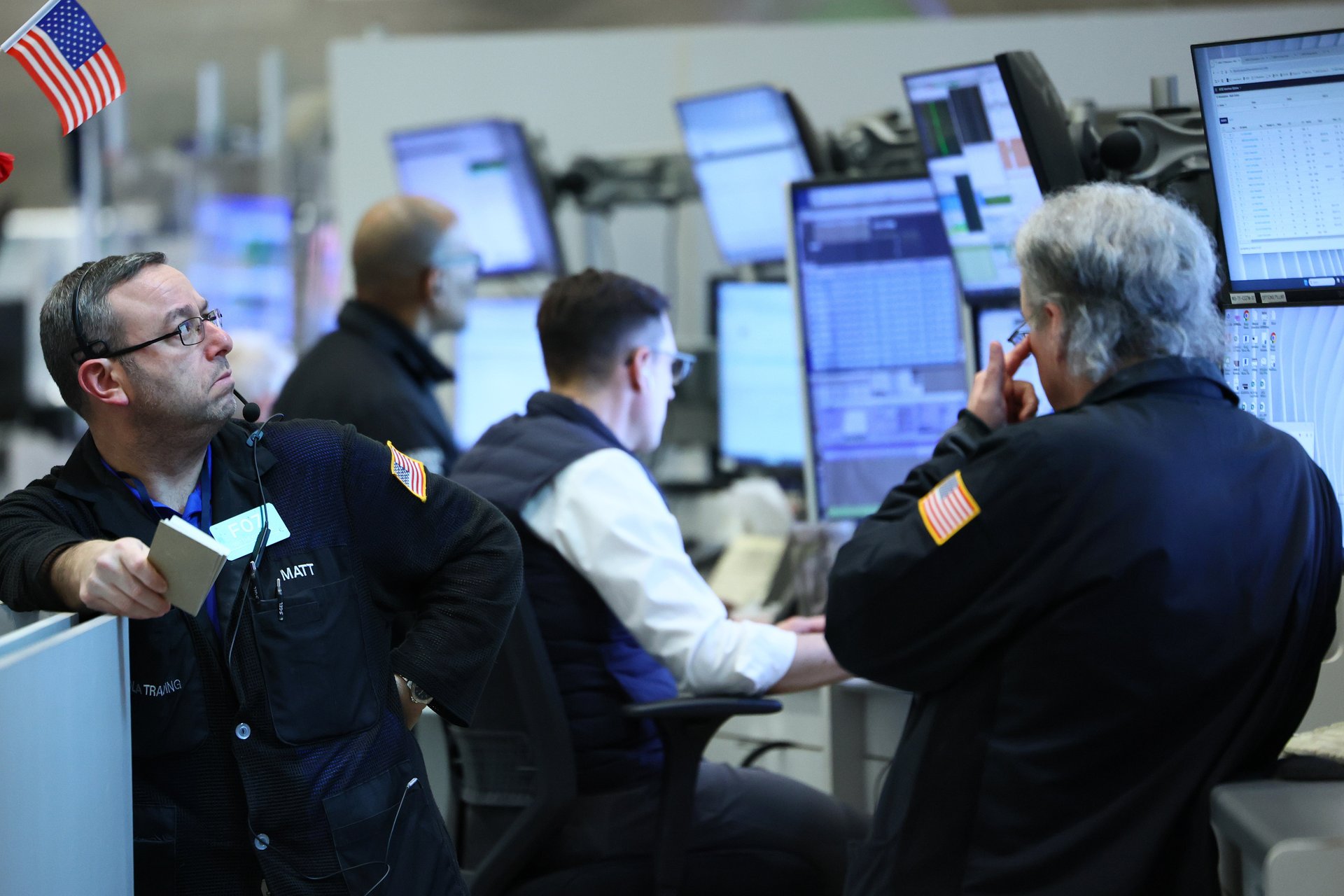Tariffs, Toyotas, and truth tests: Stocks and data to watch today
After a political pivot sparked a surge, Wall Street faces a new round of hard numbers

Wall Street staged a dramatic rebound yesterday after President Donald Trump abruptly delayed parts of his planned tariff rollout — pausing some retaliatory measures while reaffirming steep duties on Chinese EVs and tech imports. The 90-day pause, announced just hours before the tariffs were set to take effect, jolted stocks and rocked major indices. The about-face sparked a frenzied rebound, with the Nasdaq jumping 12.1% (its second-biggest gain on record) and the Dow surging more than 3,000 points for the first time in history.
Suggested Reading
Early this morning, futures point lower, with the Nasdaq down 2%, the S&P 500 falling 1.8%, and the Dow off 1.4%. The whiplash signals investors are still weighing the implications of a tariff truce that arrived as abruptly as the policy itself — redirecting billions in market value overnight and igniting questions about how and why market-moving decisions are made.
Related Content
Money moves, doubt sticks
The Fear & Greed Index — which tracks market sentiment using indicators such as momentum, volatility, and demand for safe havens — jumped 14 points intraday yet remained in “Extreme Fear” territory. It was a move that suggested investors were trading the bounce, not buying the rally.
The 90-day tariff pause also sent shockwaves beyond U.S. borders. Japan’s Nikkei 225 surged nearly 10%, marking one of its most significant gains in recent years. The European Union announced a corresponding 90-day delay in its planned retaliatory tariffs.
All eyes on inflation, consumer confidence — and used car sales
Fresh CPI data released Thursday morning offered a dose of relief: Core inflation, which excludes food and energy, rose just 0.1% in March—the slowest monthly pace in nine months. Year-over-year, core prices climbed 2.8%, marking the tamest reading since mid-2021.
CarMax’s (KMX) fiscal fourth-quarter results, also released Thursday morning, revealed mixed performance amid a volatile market environment. The company reported net revenues of $6.0 billion, a 6.7% increase from the previous year. Earnings per diluted share rose to $0.58, up 81.3% from $0.32 a year ago. However, this fell short of analysts’ expectations of $0.66 per share. Carmax stock was down nearly 8% before market open.
Finance heavyweights will headline Friday’s earnings slate
Friday will bring a wave of first-quarter results from some of the biggest names in finance, giving investors a deeper look at how the bulge bracket and other banking behemoths are navigating 2025’s economic uncertainty.
JPMorgan Chase (JPM) will be closely watched for signals on loan growth, credit quality, and net interest margins — critical metrics that show how it’s managing in a high-rate, low-visibility environment. Any signs of tightening credit or weakening consumer demand could ripple across the market.
Wells Fargo’s (WFC) numbers will offer a window into consumer lending, where even small shifts in behavior can signal broader household strain. With recession chatter back on the table, analysts are looking for clues about how the bank is adjusting its exposure.
Asset manager BlackRock (BLK) will report amid surging volatility and massive swings in investor sentiment. Its earnings should reveal whether clients are retreating into cash or leaning into risk — and where the big money is flowing.
Morgan Stanley (MS) will round out the Friday slate, with attention on investment banking fees and deal activity. With M&A pipelines reportedly thinning and IPOs still scarce, the results could help gauge the depth of Wall Street’s current deal-making drought.